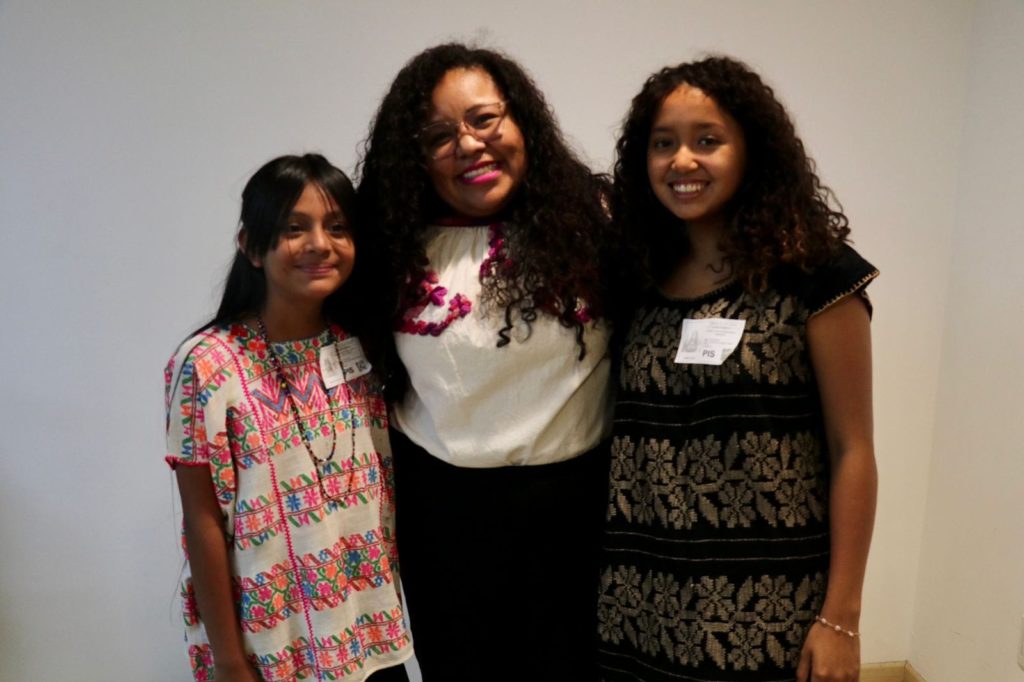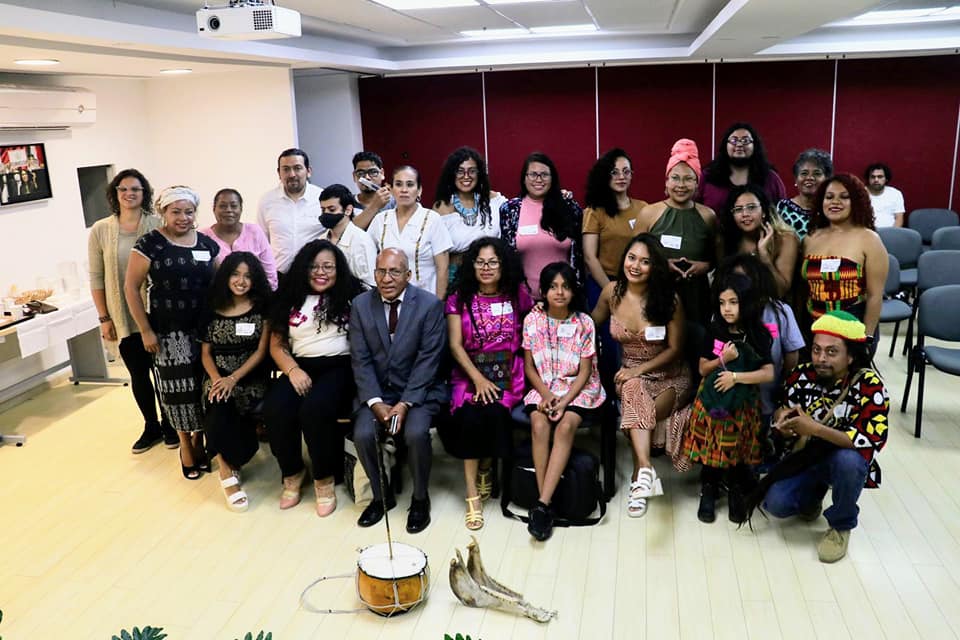Listen to What They Have to Say!
Introduction by Dr. María Celeste Sánchez, Federal Senator for México City (Translations by Patricia Ann Talley, Editor)
In an unprecedented exercise of bilateral conversation, Afro-Mexican children and youth participated in the Federal Congress session in April 2023. We had the opportunity to listen carefully to their opinions regarding the situations they face in the daily life of their communities. Donají Sofia and Isaura Valentina are two brilliant girls who have been activists for the rights of Afro-Mexican children from an early age. I invite you to listen to what they have to say.

Donaji Sofia (right) and Isaura Valentina (left) are shown with Federal Senator Maria Celeste Sanchez following their presentations to Congress.
Presentation by Donají Sofia Hernandez Mendez
Good morning. My name is Donají Sofia Hernandez Mendez*. I am Afromexicana.
Why is it essential for adolescents to participate in political spaces?
Children and youth are the future of this movement/country, and now more than ever is the time for politicians to take us into account, listen, and act on our concerns.
We live in underserved communities where public health clinics do not have sufficient funding. Education is precarious; we lack teachers, work materials, decent facilities, and support for students.
There are communities where we do not always have public lighting, electrical networks, or internet access, and if there is, on many occasions, it is deficient.
Education: Many young people must stop studying to bring a livelihood to their homes. They leave their studies because they cannot support the expenses. Some young people only finish high school and from there they start working without completing their studies.
In the communities, on many occasions, Afro children and adolescents experience violence on the part of teachers and even from our other classmates. It is something very common that has been seen hundreds of times and nothing has ever been done to combat it. They always ignore these cases and do not process them correctly. Afro students tend to reject themselves thanks to these experiences.
Our History: The education system, whether public or private, does not know our history and culture. They seem like a broken record, repeating the same thing, that Afros were slaves who were raped and murdered for the simple fact of being Afro.
Where in the textbooks does it talk about our culture? At what point do they talk about us? Does the educational society know that we were more than slaves? Do people know that the first president was Afro?
Health: In our communities, health often becomes a problem, either due to a lack of clinics, shortage of supplies, and lack of necessary equipment to be able to proceed. The premature death of children due to health complications is a difficulty in the social development of the community. The misunderstanding is alarming.
Pregnancies: In many deliveries, Afro women suffer obstetric violence. It is common to hear that they expect it because they can endure more pain because they are black. Also, the large alarming figure that exists for child and adolescent pregnancies is very large and it is something that needs to be worked on.
Culture: The Afro culture is very large, always depending on the community and its surroundings. Hair is one of our most representative parts. Our hairstyles are special and have a great historical and spiritual charge. Some examples are the Bantu Knots or cuetitos; the Drelas, which are also known as Drelo; Dredlocks; and Jamaican Loc among other names. One of the best-known is “Box Braids or little braids”.
Cultural rights are access to all manifestations, artistic and patrimonial. My inheritance is my history, and so that prevails and is reproduced. Reproducing it preserves the history of the people.
Children and youth need cultural spaces.
Our dances have a very large spiritual charge and great historical value. A very great example is the dance of the devils of Cuajinicuilapa.
*Donaji Sofia is the daughter of Dr. Candelaria Mendez Tello, the president of Mexico Negro, A.C., one of the leading civil rights organizations in the country, and the niece of editor Patricia Ann Talley. We are so proud of her!
Related Articles:

